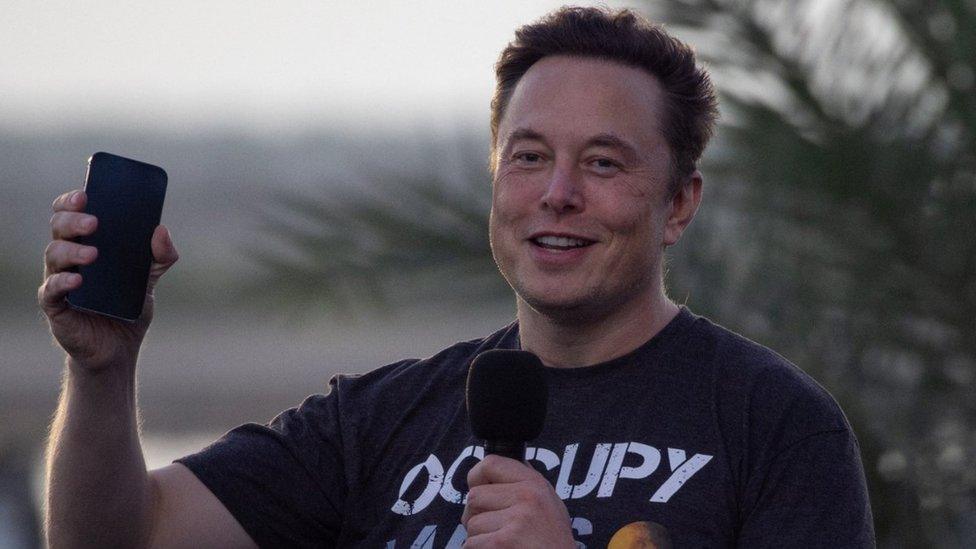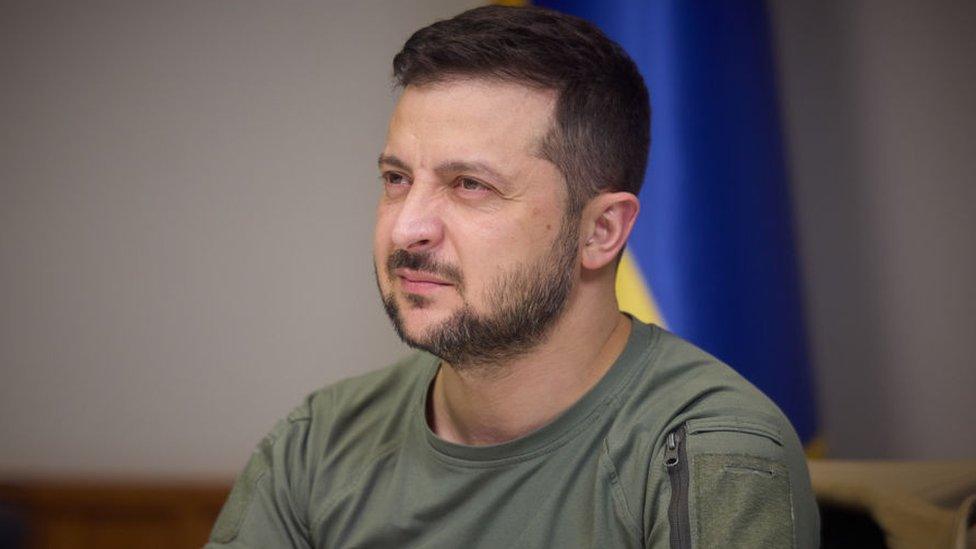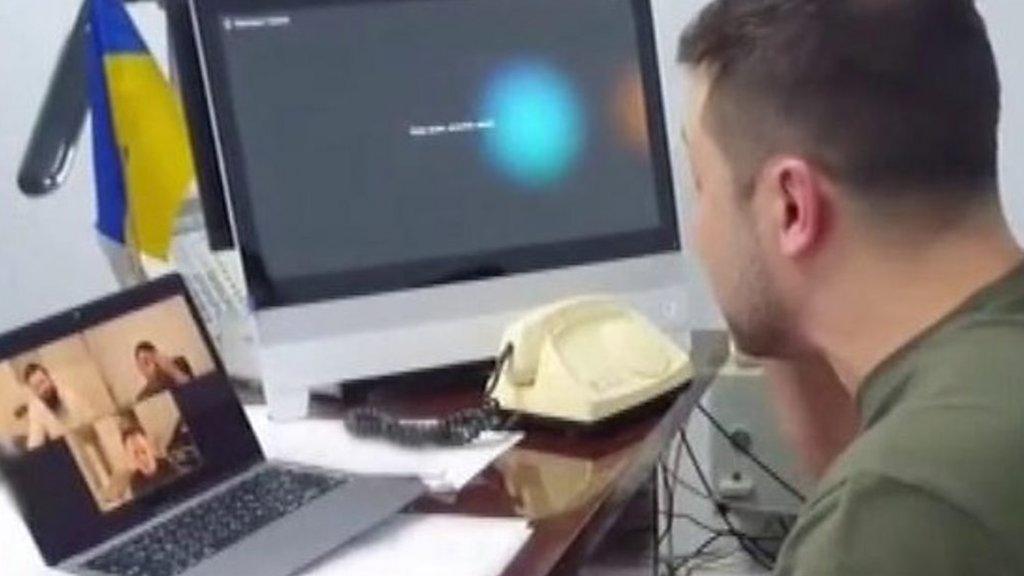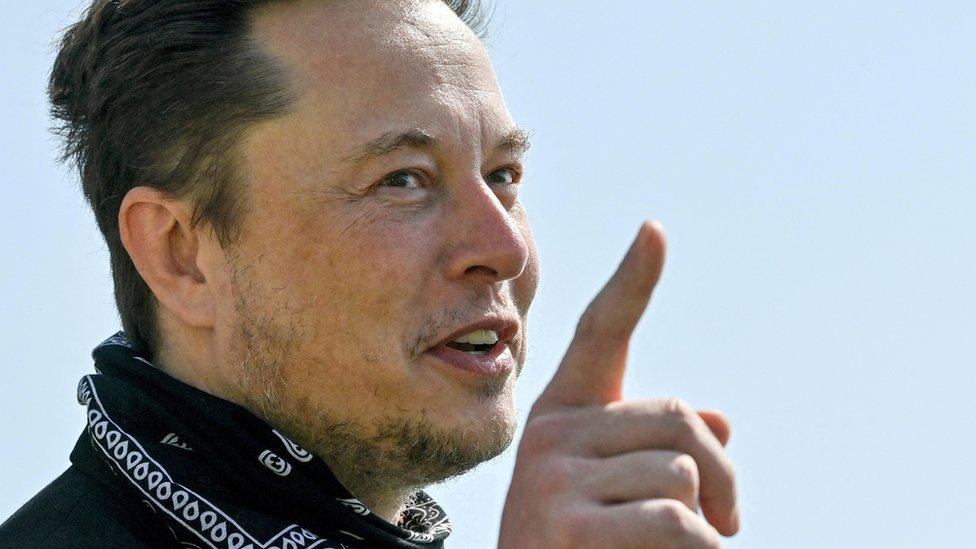Elon Musk denies he spoke to Putin about Ukraine war
- Published

Elon Musk has denied reports he spoke to Vladimir Putin before posting a Twitter poll with his suggestions for ending Russia's invasion of Ukraine.
Ian Bremmer, head of the Eurasia Group political risk consultancy, alleged that Mr Musk had personally told him about the conversation with Mr Putin.
But Mr Musk has now rejected this.
"I have spoken to Putin only once and that was about 18 months ago. The subject matter was space," Mr Musk tweeted.
Last week, the Tesla CEO asked his 107.7 million followers to vote on ways to resolve the Ukraine war.
The suggestions included a proposal to hold votes in parts of Ukraine occupied by Russia that the Kremlin says it has annexed. His comments were welcomed by Moscow.
The multi-billionaire said: "Russia leaves if that is will of the people."
President Putin has already declared four Ukrainian regions to be part of Russia, following so-called referendums denounced as fraudulent by Kyiv and its Western allies. Russia does not fully control any of the four regions.
Mr Musk also suggested the world should "formally" recognise Crimea - illegally annexed by Moscow in 2014 - as part of Russia.
In a newsletter, Mr Bremmer wrote that Mr Musk told him the Russian president was "prepared to negotiate", but only if Crimea remained under Russian control, if Ukraine accepted a form of permanent neutrality, and if Kyiv recognised Russia's annexation of Luhansk, Donetsk, Kherson and Zaporizhzhia.
Mr Bremmer said the SpaceX boss told him that Mr Putin said these goals would be accomplished "no matter what" and that there was the potential of a nuclear strike if Ukraine invaded Crimea.
But Mr Musk has since denied the reports.
Allow X content?
This article contains content provided by X. We ask for your permission before anything is loaded, as they may be using cookies and other technologies. You may want to read X’s cookie policy, external and privacy policy, external before accepting. To view this content choose ‘accept and continue’.

Mr Musk's initial poll caused widespread controversy.
Ukrainian Foreign Minister Dmytro Kuleba said people proposing Ukraine give up on its people and land "must stop using word 'peace' as an euphemism to 'let Russians murder and rape thousands more innocent Ukrainians, and grab more land'".
Russian chess grandmaster Garry Kasparov called Mr Musk's tweet "moral idiocy, repetition of Kremlin propaganda, a betrayal of Ukrainian courage & sacrifice".
Kremlin spokesman Dmitry Peskov welcomed Mr Musk's suggestions, stating: "It is very positive that somebody like Elon Musk is looking for a peaceful way out of this situation."
Early in the war, the billionaire gained widespread popularity in Ukraine after sending a number of his Starlink internet terminals to the country. He was subsequently invited to visit by Ukrainian President Volodymyr Zelensky.
But his recent tweets have seen that relationship sour, with Mr Zelensky last week hitting out at his Twitter polls.
US federal law prevents private citizens from conducting foreign affairs without the permission or involvement of the US government.
The Logan Act was signed into law by President John Adams in 1799, but nobody has ever been prosecuted under it.
Related topics
- Published4 October 2022

- Published6 March 2022

- Published1 March 2022
